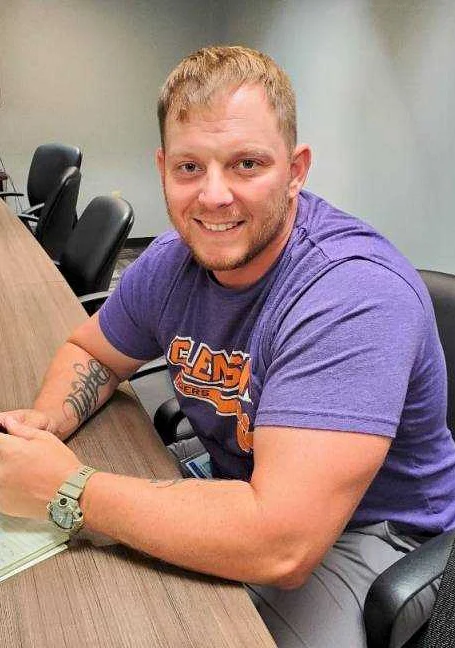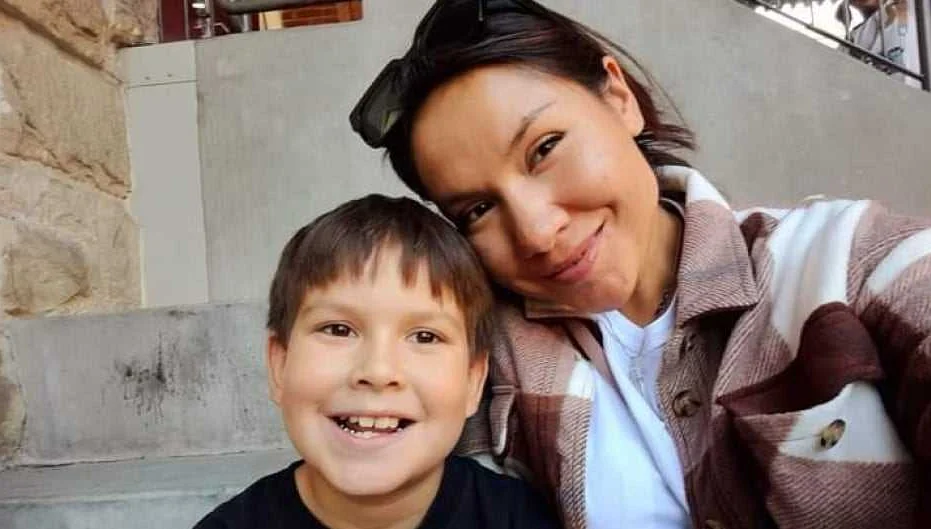Children’s Ombudsman: St. Petersburg Needs a Center for the Rehabilitation of Teenagers with Addictions
The Children’s Ombudsman in St. Petersburg highlights the urgent need for a dedicated center for the rehabilitation of teenagers struggling with addictions. This article explores the importance of such a facility in providing support, treatment, and guidance to help young people overcome their dependencies and lead healthier lives.
St. Petersburg’s Children’s Ombudsman is urging city authorities to establish a dedicated center for teen addiction rehabilitation as a matter of urgency. The Ombudsman’s office has expressed deep concern over the growing number of teenagers in the city who are struggling with addiction and the lack of appropriate resources available to them.
According to recent data, the number of teenagers with addiction problems in St. Petersburg has been steadily increasing over the past few years. Experts attribute this to various factors, including the availability of drugs, peer pressure, and a lack of awareness and education on the dangers of substance abuse.
The absence of a dedicated center for teen addiction rehabilitation has left these vulnerable young people without access to the specialized care and support they desperately need. Instead, they are often left to fend for themselves, with limited options and resources.
The establishment of a dedicated center for teen addiction rehabilitation would provide a safe and nurturing environment for these struggling teenagers. It would offer specialized treatment programs, counseling services, and educational resources to help them overcome their addiction and reintegrate into society. Additionally, such a center would collaborate with local schools, community organizations, and healthcare providers to raise awareness about addiction prevention and facilitate early intervention.
Children’s Ombudsman: St. Petersburg Urgently Calls for Teen Addiction Rehabilitation Center

The Children’s Ombudsman in St. Petersburg is calling for the urgent establishment of a dedicated center for teen addiction rehabilitation in the city. This comes as a response to the growing concern about the increasing number of teenagers struggling with addiction.
The lack of specialized treatment options for teenagers has become a pressing issue in St. Petersburg. Many young individuals are falling prey to substance abuse and addiction, and there is a serious need for a rehabilitation center that specifically caters to their needs.
The Children’s Ombudsman emphasizes that early intervention and effective rehabilitation programs are crucial in addressing the issue of teen addiction. By providing a dedicated center, teenagers will have access to the necessary resources and support to overcome their addiction and lead healthy, productive lives.
Moreover, having a teen addiction rehabilitation center can also contribute to reducing the crime rate among young individuals. When teenagers are provided with the help they need to overcome addiction, they are less likely to engage in criminal activities associated with drug use.
It is essential that the government and relevant authorities take immediate action in establishing a teen addiction rehabilitation center in St. Petersburg. This will not only address the pressing issue of teen addiction but also ensure that the city’s youth have the opportunity to grow into responsible and successful adults.
The Children’s Ombudsman urges the community to support this initiative and raise awareness about the importance of teen addiction rehabilitation. Together, we can create a safer and healthier environment for the future generations of St. Petersburg.
In conclusion, the urgent establishment of a dedicated center for teen addiction rehabilitation in St. Petersburg is crucial in addressing the growing concern of teenage substance abuse and addiction. By providing specialized treatment options and support, we can help teenagers overcome their addiction and pave the way for a brighter future.
The Importance of Teen Addiction Rehabilitation

Teen addiction is a pressing issue that affects individuals, families, and communities. It is crucial to address this problem with effective rehabilitation programs specifically tailored for teenagers.
Teenagers are at a critical stage of development, both physically and emotionally. Substance abuse during this period can have long-lasting effects on their health, behavior, and future prospects. Addiction can hinder their academic performance, disrupt their relationships, and jeopardize their overall well-being.
Rehabilitation programs play a vital role in helping teens overcome addiction. These programs provide a safe and supportive environment where teenagers can receive the necessary treatment and guidance to break free from substance abuse.
Teen addiction rehabilitation focuses not only on detoxification but also on addressing the underlying issues that contribute to addiction. It offers counseling services, individual and group therapy, and educational programs to help teenagers understand the risks associated with substance abuse and develop healthier coping mechanisms.
By providing teenagers with the tools they need to overcome addiction, rehabilitation programs empower them to make positive changes in their lives. They teach teens essential life skills, such as stress management, decision-making, and problem-solving, which are crucial for their overall growth and development.
Additionally, teen addiction rehabilitation programs often involve family therapy to promote healing and strengthen familial bonds. Engaging families in the recovery process helps create a supportive network that facilitates long-term sobriety and reduces the risk of relapse.
Investing in dedicated centers for teen addiction rehabilitation, as advocated by the Children’s Ombudsman in St. Petersburg, is essential. Such centers can provide comprehensive care and specialized treatment tailored to the unique needs of teenagers. They can also facilitate collaboration between healthcare professionals, educators, and community leaders to ensure a holistic approach to teen addiction rehabilitation.
In conclusion, teen addiction rehabilitation is of utmost importance to address the growing issue of substance abuse among teenagers. By providing specialized programs and support, we can help teenagers overcome addiction, improve their well-being, and pave the way for a brighter future.
Current Challenges in Addressing Teen Addiction

Teen addiction is a growing concern in modern society, and addressing this issue requires a multi-faceted approach that takes into account the unique challenges and vulnerabilities that teenagers face. There are several key challenges that need to be addressed in order to effectively tackle teen addiction.
Firstly, one of the major challenges is the lack of dedicated centers for teen addiction rehabilitation. As the Children’s Ombudsman of St. Petersburg has urgently called for, having a dedicated center specifically tailored to the needs of teenagers would provide a safe and supportive environment for their recovery. This would enable them to receive the specialized care and treatment they need to overcome their addiction.
Secondly, there is a challenge in recognizing and addressing the underlying issues that contribute to teen addiction. Many teenagers turn to substance abuse as a coping mechanism for underlying mental health issues such as depression, anxiety, or trauma. It is essential that treatment programs and rehabilitation centers not only address the addiction itself but also provide comprehensive mental health support to address these root causes.
Another challenge is the stigma associated with teen addiction. Society often views addiction as a moral failing or a lack of willpower, which can lead to judgment and discrimination. This stigma can discourage teenagers from seeking help and make it difficult for them to access the necessary support and resources. It is crucial to create a supportive and non-judgmental environment that encourages teenagers to seek help and offers them the necessary support to recover.
Additionally, the prevalence of social media and online platforms poses a unique challenge in addressing teen addiction. The constant exposure to idealized images and peer pressure can contribute to feelings of inadequacy and the desire to fit in. It is important to educate teenagers about the potential harms of online platforms and provide them with the necessary skills to navigate these challenges safely.
| Lack of dedicated centers for teen addiction rehabilitation |
| Recognizing and addressing underlying mental health issues |
| Stigma associated with teen addiction |
| Prevalence of social media and online platforms |
In conclusion, addressing teen addiction requires a holistic and comprehensive approach that takes into account the unique challenges that teenagers face. By establishing dedicated centers, addressing underlying mental health issues, combating stigma, and providing education on the dangers of social media, we can work towards effectively addressing teen addiction and helping teenagers on their path to recovery.
Why St. Petersburg Needs a Dedicated Center

St. Petersburg is facing a pressing issue when it comes to teen addiction. The city has seen a dramatic increase in the number of young people struggling with substance abuse, and it is clear that urgent action is needed to address this problem. A dedicated center for teen addiction rehabilitation is crucial in order to provide these young individuals with the help and support they need.
First and foremost, a dedicated center would offer specialized treatment for teen addiction. Adolescents have unique needs when it comes to addiction recovery, and a center that is specifically tailored to their age group would be able to provide them with the appropriate care. The center would have trained professionals who are experienced in working with teens, ensuring that they receive the best possible treatment.
Additionally, a dedicated center would provide a safe and supportive environment for teens to recover. Many young people struggling with addiction may not have a stable home environment or a strong support system. By having a dedicated center, these teens would have a place where they can feel safe and supported as they work towards recovery. It would also help to remove them from potentially harmful environments that could contribute to their addiction.
Furthermore, a dedicated center would offer a range of services to address the complex needs of teens struggling with addiction. This could include individual therapy, group counseling, educational programs, and vocational training. By providing a comprehensive approach to recovery, the center would give teens the tools they need to not only overcome their addiction but also to build a bright future for themselves.
Lastly, having a dedicated center would send a strong message to the community that St. Petersburg is serious about tackling the issue of teen addiction. It would demonstrate a commitment to helping young people and investing in their well-being. By addressing this problem head-on, the city can work towards creating a healthier and safer environment for its youth.
In conclusion, St. Petersburg urgently needs a dedicated center for teen addiction rehabilitation. Such a center would provide specialized treatment, a safe and supportive environment, a comprehensive approach to recovery, and a strong message of commitment to the well-being of young people. It is essential that action is taken to address the growing problem of teen addiction in the city and provide these vulnerable individuals with the help and support they need.